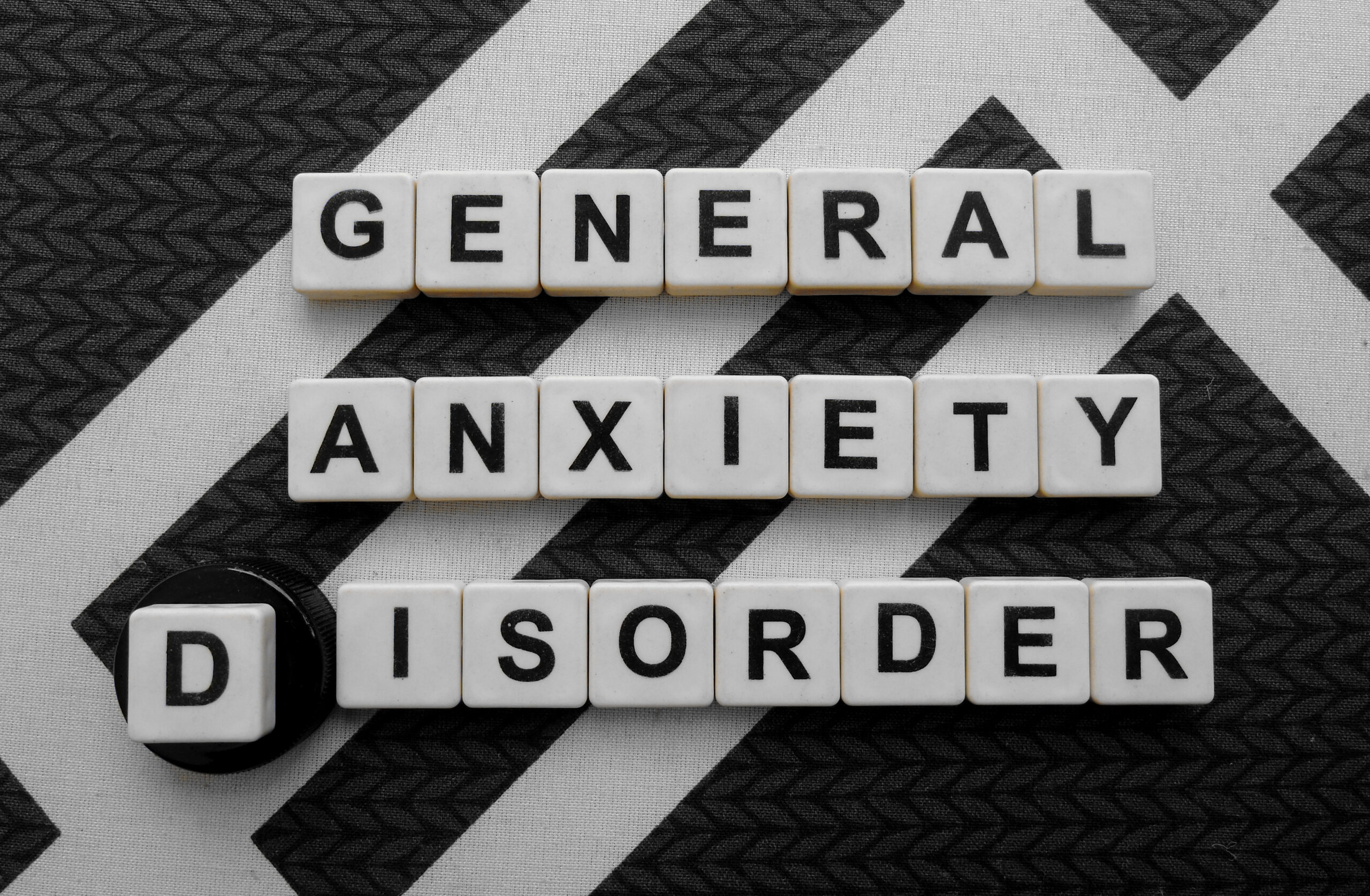
Generalized Anxiety Disorder – or simply referred to as Anxiety – is an emotion that occurs in many situations. Anyone can experience anxiety, and most will at some point during their lifetime.
Teen anxiety can arise from several causes, including people, events, or circumstances that cause discomfort, fear, or worry about how they will manage something in the future. There are several examples of anxiety-producing events your teen may experience, such as a first job interview, changing schools, starting a new job, taking an exam, applying to college, and several others. In many situations, anxiety typically subsides soon after the event itself is over.
In other cases, feelings of anxiety do not resolve. In these cases, intense anxiety evolves into more severe emotional distress, sometimes causing panic attacks or debilitating fear. If your teen has symptoms of an anxiety disorder, they will feel excessive feelings of worry or fear that are overwhelming and persistent. These feelings occur about everyday situations that generally do not produce worry or fear in others. More often than not, they cannot control their symptoms, and the emotions they feel are disproportionate to the actual dangers that may evolve at the moment. Consistent worry might lead your teen to actively avoid people, places, or events that may bring about anxious feelings.
Understanding Anxiety
It is important to remember that anxiety is more than temporary worry. An anxiety disorder is a persistent and uncontrollable worry that interferes with your teen’s daily life. It is not uncommon for anxiety symptoms to begin in early childhood and continue throughout one’s lifetime.
Statistics provided by the National Alliance on Mental Illness (NAMI) indicate anxiety disorders rank among the most common illness in America. Data from several studies show that as many as 19% of the population of about 40 million adults over age eighteen struggle with anxiety. But adults are not the only ones who struggle with crippling anxiety.
Unfortunately, like many mental health conditions, anxiety disorders are treatable, yet few of those who could benefit from treatment ever seek or receive the help they need. The Anxiety and Depression Association of America (AADA) estimates that less than 37% of people who have an anxiety disorder get treatment.
Types of Anxiety
The Diagnostic and Statistical Manual for Mental Disorders (DSM) provides several diagnostic criteria that medical and mental health professionals use to accurately assess and diagnose anxiety disorders. The DSM lists several possible types of anxiety, although five specific diagnoses are more common in the population than others. These include panic disorders, social phobias, obsessive-compulsive disorder (OCD), post-traumatic stress disorder (PTSD), and generalized anxiety disorder or GAD.
More About Generalized Anxiety Disorder
The Anxiety and Depression Association of America (ADAA) described Generalized Anxiety Disorder (GAD) as “persistent and excessive worry about a number of different things.” Teens who struggle with generalized anxiety disorder worry about things many other teens do not, at least to the same degree. This can lead to challenges in many areas of your teen’s life, including academics, family relationships, and social relationships.
The Diagnostic and Statistical Manual of Mental Disorders indicates that your teen meets the diagnostic criteria for generalized anxiety disorder when they struggle to control fear or worry on more days than not for a period of at least six months. In addition, they must exhibit three or more symptoms of generalized anxiety disorder, including elevated heart rate, difficulties sleeping, stomach problems, sweating, rapid breathing, problems concentrating, feeling nervous or “on edge,” and having a sense of danger, panic or impending doom. Requiring anxiety symptoms to occur for a period of at least six months helps your teen’s mental health provider at Beachside separate symptoms connected to generalized anxiety disorder from those linked to a specific stressor.
Generalized anxiety disorder is not uncommon. Recent statistics indicate that it affects up to 8% of teens in the United States. Although a generalized anxiety disorder diagnosis can occur at any age, people are at the most significant risk between early childhood and middle age. To date, a specific cause of generalized anxiety disorder is unknown. However, researchers suggest several factors, including stressful life experiences, biological factors, and a family history of anxiety disorders, are contributing risk factors.
Treatment Options for Generalized Anxiety Disorder
Regardless of its age of onset, the symptoms of generalized anxiety disorder are disruptive and challenging to manage, especially for many teens. When daily interactions at school, home, or social settings are inhibited by oppressive and overwhelming worry or fear, it becomes difficult for your teen to “be a teen.” Fortunately, several treatment options are available to help your teen manage and safely overcome generalized anxiety disorder.
Self-care and Lifestyle Changes
While treatment to learn more about coping and stress management skills may be the most beneficial path for your teen, there are several “at home” treatment options as well. These coping tools can be used when your teen is faced with anxiety or stressors to help reduce the intensity and severity of their anxiety symptoms. Turning to self-care can help your teen relax and better manage the circumstances they face that would typically trigger anxiety.
Examples of self-care skills your teen can try include eating a well-balanced diet, limiting caffeine intake, participating in daily activity, and getting enough sleep. Additionally, it is important to consider ways to relax their mind when faced with stressors. For example, counting to ten, taking slow and deep breaths, maintaining positivity, welcoming humor, and accepting that there are indeed things that are outside of their control. If none of the above work (or do not work well), it is crucial to reach out to a family member or a mental health provider at a teen treatment center like Beachside.
Getting Help for Anxiety at Beachside
Anxiety symptoms can be challenging to manage, especially for teens. The teen years can be a time of challenges without struggles with a mental health condition like anxiety. Fortunately, with help, anxiety is manageable and highly treatable. At a teen-focused treatment center like Beachside, our treatment programs offer many treatment options designed to help reduce and manage the symptoms associated with anxiety disorders. Some of the most common treatments include:
Medication
Several different approved drugs are used to treat teen anxiety disorders. If your teen struggles with a mild anxiety disorder, you can talk to their primary care provider or a mental health provider about how medications can help. Understanding the pros and cons of each medicine can help you decide if perhaps a medication-based therapy might be the right choice for your teen.
Some of the most common medications include anti-depressants, benzodiazepines, beta-blockers, anti-convulsants, and anti-psychotics. Each of these medications operates differently, and each will alleviate different symptoms. Whether a drug is successful will depend on your teen’s specific symptoms and how they react to the medication. A medication that works for one person may not work or maybe ill-suited for another, so it is imperative to talk to a doctor before taking any medicines.
Psychotherapy
Psychotherapy is a type of counseling that helps your teen learn how their emotions affect their behaviors. Psychotherapy is sometimes referred to as talk therapy. Individual psychotherapy sessions are conducted by a trained mental health specialist in either an outpatient or an inpatient residential setting like our treatment center at Beachside. During a therapy session, a mental health specialist will listen and talk to your teen about their thoughts and feelings. They will also suggest ways to understand and manage these thoughts and feelings in a healthy way, which will lead to better management of your teen’s anxiety disorder.
Cognitive-behavioral Therapy
One of the most widely used forms of therapy used to treat anxiety disorders is cognitive-behavioral therapy or CBT. Cognitive-behavioral therapy is also a type of psychotherapy. This particular therapy model aims to encourage your teen to consider their emotions and how those emotions contribute to their anxiety. After developing an understanding of their root emotions, CBT aims to help your teen learn how to turn negative or panic-inducing thoughts and behaviors into positive thoughts and behaviors.
Cognitive-behavioral therapy strives to teach people how to approach and manage fearful or worrisome situations without experiencing anxiety. Another significant benefit to cognitive-behavioral therapy is that it works well in cases where your teen might struggle with a co-occurring disorder or dual-diagnosis condition. If, for example, your teen has a co-occurring substance use disorder or another mental health condition in addition to generalized anxiety disorder, CBT is proven highly effective in managing and treating dual diagnosis conditions.
If your child or teen struggles with anxiety, it can be extremely difficult to function in society from day to day. Simply attending school may trigger emotions that cause either symptoms of mild anxiety or a full-blown panic attack. Living with an anxiety disorder can be frustrating. Consistent worry and fear often result in one feeling scared and tired. Finding the proper treatment that will work for your teen may take some time. This is especially true if they have more than one type of anxiety disorder or another co-occurring mental health disorder.
At Beachside, we understand the importance of individualized treatment and that it may take several different treatment options before discovering the most appropriate option for your teen. Our residential treatment program consists of therapies designed specifically for the needs of your teen. We understand that mental health treatment cannot be cookie-cutter, and one size does not fit all.
Our caring and compassionate team of therapists, medical providers, nutritionists, and other on-site staff will work with your teen and your family to develop the most comprehensive treatment program considering both their anxiety disorder and any other treatment they may need. If your teen struggles with anxiety, let Beachside show you how we can help. Contact our admissions team today for more information.
https://www.nimh.nih.gov/health/publications/generalized-anxiety-disorder-gad
https://adaa.org/understanding-anxiety/generalized-anxiety-disorder-gad




